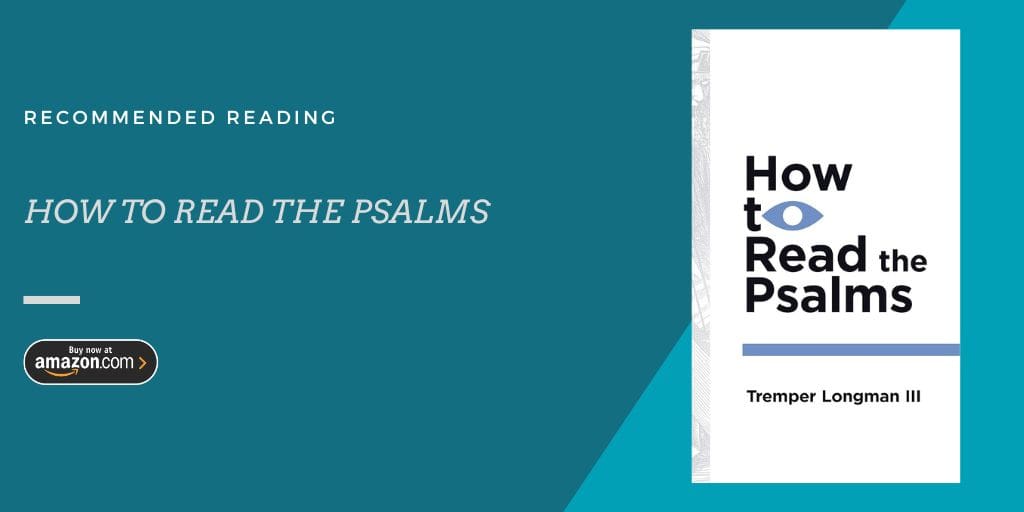When it comes to dealing with our mental health, there are few practices that have impact like that of praying the Psalms.
That’s right, I’m talking about that big book of ancient Hebrew poetry found right in the middle of the Bible. And it’s amazing how it falls right in the middle of modern Bibles, like it’s sort of the big, beautiful centerpiece of all of the Scriptures.
With mental health issues like anxiety and depression on the rise in our culture, it leaves us looking for ways to help us cope with those feelings. And there are no writings in the Bible that deal with those emotions better than the Psalms, the book of prayer-songs that cry out to God during times of incredible struggle (and times of great thanksgiving).
The Psalms as Emotional Expression
It doesn’t take long when you learn how to study the Bible that the Psalms stand out from all the rest of the books. While poetry is used in other writings (particularly in the Old Testament), the Psalms make up the song/prayer book of the Bible. And these prayer-songs cover some of the most emotional content in the Scriptures. In fact, they really cover the full range of human emotions.
Old Testament scholar and theologian Tremper Longman III says,
“As the psalmists cry out in joy or grief, they stir us as we identify similar emotions in ourselves.”
He continues,
“If we follow the example of the psalmist, The Psalms are an honest expression of emotions.”
In other words, this ancient Hebrew poetry is not only intended to express the thoughts and feelings of their author, they are also meant to stir those emotions in us.
As the Psalms explore despair and joy and everything in between, they help us to see those things in ourselves and show us how to engage God in those feelings. Whether we are in lament over loss or struggles, or in the space of thanksgiving and praise for His great blessings, we’ll find a Psalm to connect us with those emotions.
Check out some of these Psalms dealing with despair and deliverance from difficult situations:
- Psalm 13 – Deals with the feeling of abandonment and longing for God’s help.
- Psalm 42 – The writer struggles to find hope, and cries out to God for help.
- Psalm 88 – Some refer to this as the saddest psalm, dealing with darkness and feelings of being abandoned.
- Psalm 143 – Dealing with feelings of despair and weakness, praying for God’s deliverance.
And here are a few that express great joy:
- Psalm 84 – Express the joy found in gathering for worship with God’s people.
- Psalm 100 – A call to joyful service to God’s creation and His people.
- Psalm 104 – Praising the beauty and wonder of God’s creation.
- Psalm 121 – Finding joy and peace in finding help and refuge in the Lord.
All of this makes the Psalms one of the most relatable, and practical books in the entire canon of Scriptures. It’s raw emotion that always points us back to God as our source of peace, hope, and healing.
Historical Use of Psalms for Comfort
When discussing the historical use of the Psalms, we first need to recognize that they were used by the Hebrew people for centuries before the time of Christ. These songs sing the stories of their deliverance from slavery in Egypt and praise God for His Creation and so many other things that were central to their life and cultural identity.
The Psalms were also a source of comfort and strength during times of persecution for the early Christian church. These prayer-songs not only helped them express both their suffering and their hope, they also reinforced their identity as a people of God. So the practice of singing and reciting the Psalms helped the early Christians endure trials and maintain their spiritual well-being.
Even early Church Fathers recognized the use of the Psalms in Christian life. Tertullian wrote about how Scripture and Psalm readings were a core element of worship meetings. Jerome shares about how laborers would sing Psalms during their daily work, saying…
“Wherever you turn, the labourer at the plough sings Alleluia; the toiling reaper beguiles his work with Psalms; the vine-dresser as he prunes the vine sings something of David’s.”
During the 4th-6th centuries, the monastic communities made recitation of the Psalms a central part of their spiritual practice. The Desert Fathers played an important role in developing these practices into daily worship. Later on, St. Benedict formalized the use of Psalms through his Rule (for monastic life). He instituted the use of all 150 Psalms over the course of the week by working them into the hours of prayer. This practice not only added structure to daily prayer and worship, it also brought mental clarity and focus.
Much later, during the period of slavery for African Americans, we see the use of Psalms and the negro spirituals being sung to express their hopes for liberation from slavery and to cling to their identity in Christ. The Psalms themselves were sometimes used, as the theme of deliverance that was familiar for the Hebrew people is something that African American slaves could easily identify with. Inspired by and building on these themes, the spirituals blended common religious forms with African musical styles to develop their own work song and protest songs. These Psalms and spirituals became an important part of their identity and continues to inspire hope for many people today.
Even in the church today (speaking from my Episcopal perspective), the Psalms are a central part of the Daily Office morning and evening prayer. This builds on the monastic practice, bringing that same heartbeat and spiritual centering to prayer today that has been practiced by the monastic community for many centuries.
Scientific Perspectives on Prayer and Mental Health
The benefits of prayer are not merely based in ancient traditions. There’s current science that backs up how prayer has significant impacts on our mental health.
One study looked at the effects of direct person-to-person prayer (one praying for another) on individuals who struggled with depression and anxiety. Individuals who received regular prayer sessions showed significant improvements in depression and anxiety levels. They also showed increased optimism throughout the experience. In comparison, the control group not receiving prayer didn’t show the same changes. Additionally, a follow-up study found that participants maintained significant reductions in depression and anxiety along with higher optimism a year after the last prayer session.
As it relates to our own personal, private prayer practices, one review of multiple studies looked at the connection between private prayer and mental health. It found in nine out of eleven studies showing that regular private prayer resulted in lower prevalence of depression. It also showed in several of the studies that private prayer was connected to improved optimism and better coping mechanisms.
In another large-scale study out of Harvard found that participants who engaged in daily prayer experienced fewer depressive symptoms, higher life satisfaction, increased self-esteem, and greater positivity compared to those who never prayed.
These studies show the potential of prayer, including praying the Psalms, as a core practice for enhancing our mental health.
Practical Steps to Pray the Psalms
So how to we practice praying the Psalms? Is it as simple as just picking up a Bible and reading them? Well, almost. You certainly can benefit from that practice. But there’s more you can do if you wanted to get the fullness that these prayers have to offer. Regardless, like the monastics, working daily Psalm reading into your routines can have some incredible benefits for you. And here are a few other practical tips to help you get more out your time in the Psalms…
- Find Psalms that align with your current feelings – There are guides out there that can help with this, but even a simple Google search for “Psalms dealing with [insert your emotional state for feelings]” can get you a list of some good places to start. And as you get in the practice of reading them according to what you’re feeling, keep notes on which ones resonate most with you when you’re feeling a certain kind of way. That way you can refer back to them regularly when those feelings come up again.
- Learn how to reflect on each line in the Psalm – The Psalms are a form of ancient Hebrew poetry, so there’s imagery and metaphors and all kinds of depth in the way things are said, and they can benefit from deeper reflection. Here I would suggest How to Read the Psalms by Tremper Longman III as a resource to help you learn how to dive deeper into this wonderful form of writing. And as you learn more about how to read the Psalms, spend time reflecting on the images you encounter in your reading. It’ll bring a greater richness to how they touch your mind and soul.
- Write personal responses and prayers inspired by the Psalms – It’s always a good idea to do this kind of reading with a journal alongside you. As you dig in and reflect on what the psalmists are praying, take the opportunity to build on that with your own thoughts and feelings. Maybe even use the Psalm as an opportunity to write your own version of that prayer. Writing down your own reflections and prayers can be a great outlet as you process your own emotions (some refer to this as writing therapy).
- Memorize Psalms (or verses) that bring you comfort – Scripture memorization has been shown to have several of its own benefits, particularly when they are passages that have benefits like we’re discussing with the Psalms. Being able to quickly recall words that bring you comfort and peace can help bring you to the place where you need to be mentally and emotionally.
These are just a few simple steps to help you integrate Psalm reading into your regular habits.
Personally, I like doing the Morning Prayer and Evening Prayer from the Daily Office (while I admit that I can certainly be more consistent with it). I like to use the Venite app (Apple | Google Play), but everything I need is also found in our Book of Common Prayer (Episcopal). The Morning and Evening Prayers go through a lot more than just the Psalm readings, but Psalms are built into each one. And if you use the Venite app, everything is already mapped out for you (let me know if you want my recommendations on some of the options for variations in there). I’ve found that when I’m consistent in praying the Daily Office in this way, it’s very centering and helps me walk my day with a great sense of peace.
A Personal Testimony and Modern Application
I work actively in youth ministry in the Episcopal Church. But I meet regularly with other youth minister from other denominations. One of them once told me that she did a completely anonymous survey with her youth group about what they wanted to discuss in their meetings. Overwhelmingly, they said they wanted to talk about how to manage their anxiety and depression. It’s amazing that even at a young age, they recognize their own mental health struggles, and they want to learn how to deal with it!
In our church, I try to approach our youth studies with a strong balance of the Anglican approach to theology, balancing scripture, tradition, and reason. So I teach them a lot about how to study the Bible, and then we have several weeks that we just pick one of the passages from our weekly lectionary readings read during worship (a passage from each Old Testament, Psalms, New Testament, and Gospels). Most of the time, they ask to study the Psalm.
What’s amazing about it is that I like to think that some New Testament passage, particularly the Gospel, is what’s going to give them the most profound revelations on how to live their lives. But I often find that it’s in studying the Psalm that we tend to have some of our deepest conversation and greatest revelations.
I believe this is because of what these prayers touch deep inside our own struggles and hopes and daily living that we can relate to more than what many other passages can touch.
To be honest, I’ve even gotten to the point in studying where I’ve steered them away from discussing the Psalms out of fear that we’d become theologically imbalanced (or something silly like that). But these discussions are changing them more than anything else I can attempt to guide them in.
And I think that’s one final thing that I would offer here as we focus on praying the Psalms as a way to improve our mental health. Do it in community with other people. Find ways to dig into these beautiful prayers together. Church isn’t supposed to be done in isolation in general. It’s a we thing at it’s core. And that’s important when we’re talking about mental health too. Isolation is the worst thing you can do. So I promise you, you’ll get more out of it when you dig into the Psalms with other people.
Final Thoughts on Praying the Psalms
It’s incredible, really, that these ancient prayer-songs can resonate so deeply with every human emotion even thousands of years after they were written down. To me, that’s a sign that God is in it. In His eternal nature, He’s able to inspire the writing of prayers that would reach into our hearts no matter what our culture, lifestyles, or other status in life might be. These impact us whether we’re an ancient agrarian society, a monastic in the middle ages, a slave during a dark time in our country’s history, or a youth growing up in a modern technology-driven culture. They hit at something common in our human nature and experience that’s there no matter when or where we live.
So no matter where you’re at in your mental health journey, I encourage you to explore the Psalms as a resource to help. You’ll find great strength, peace, hope, faith, love, and so many other things. And in writings that are so filled with the Great Healer Himself, you’re sure to find even more than what you’re looking for!






0 Comments